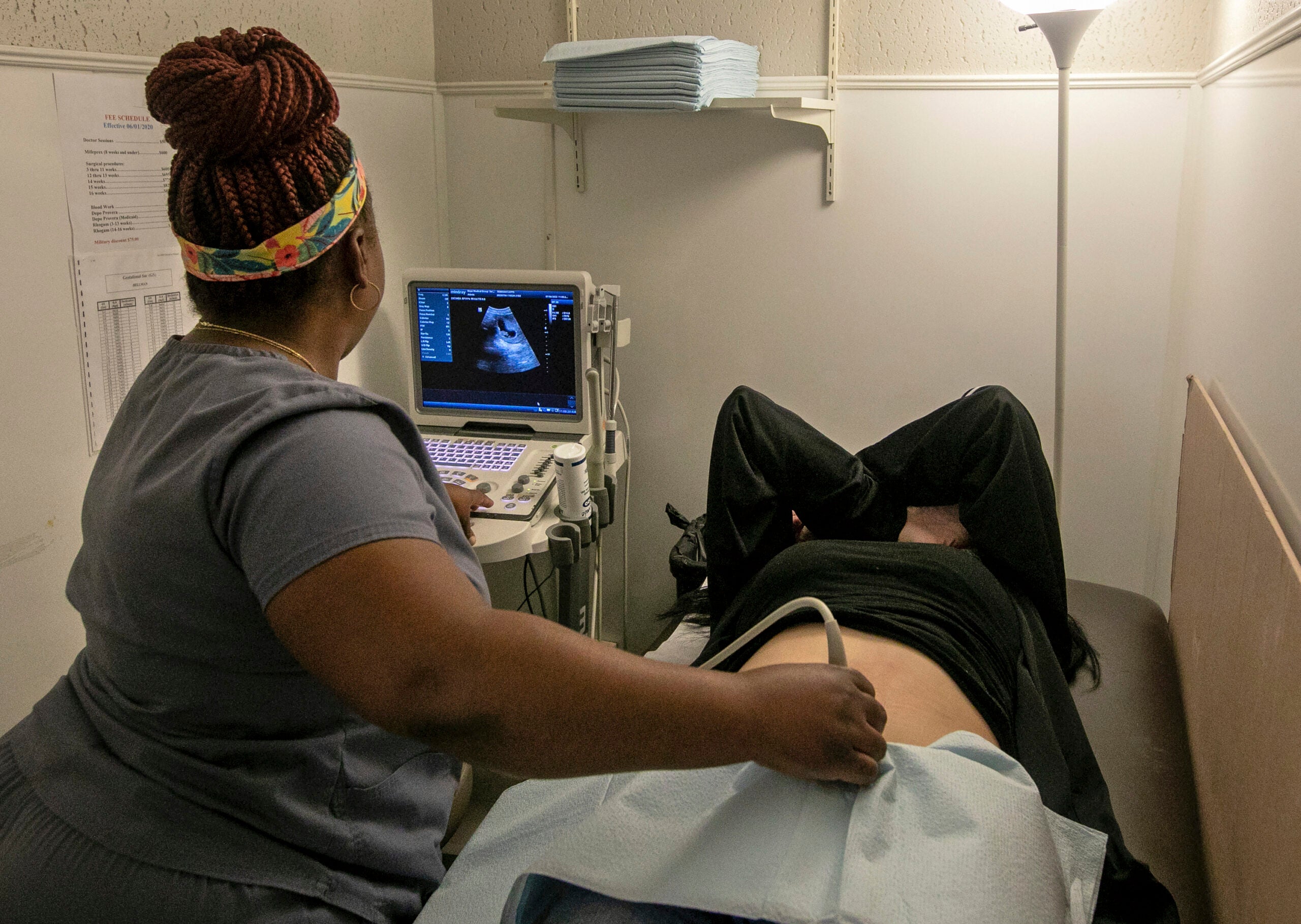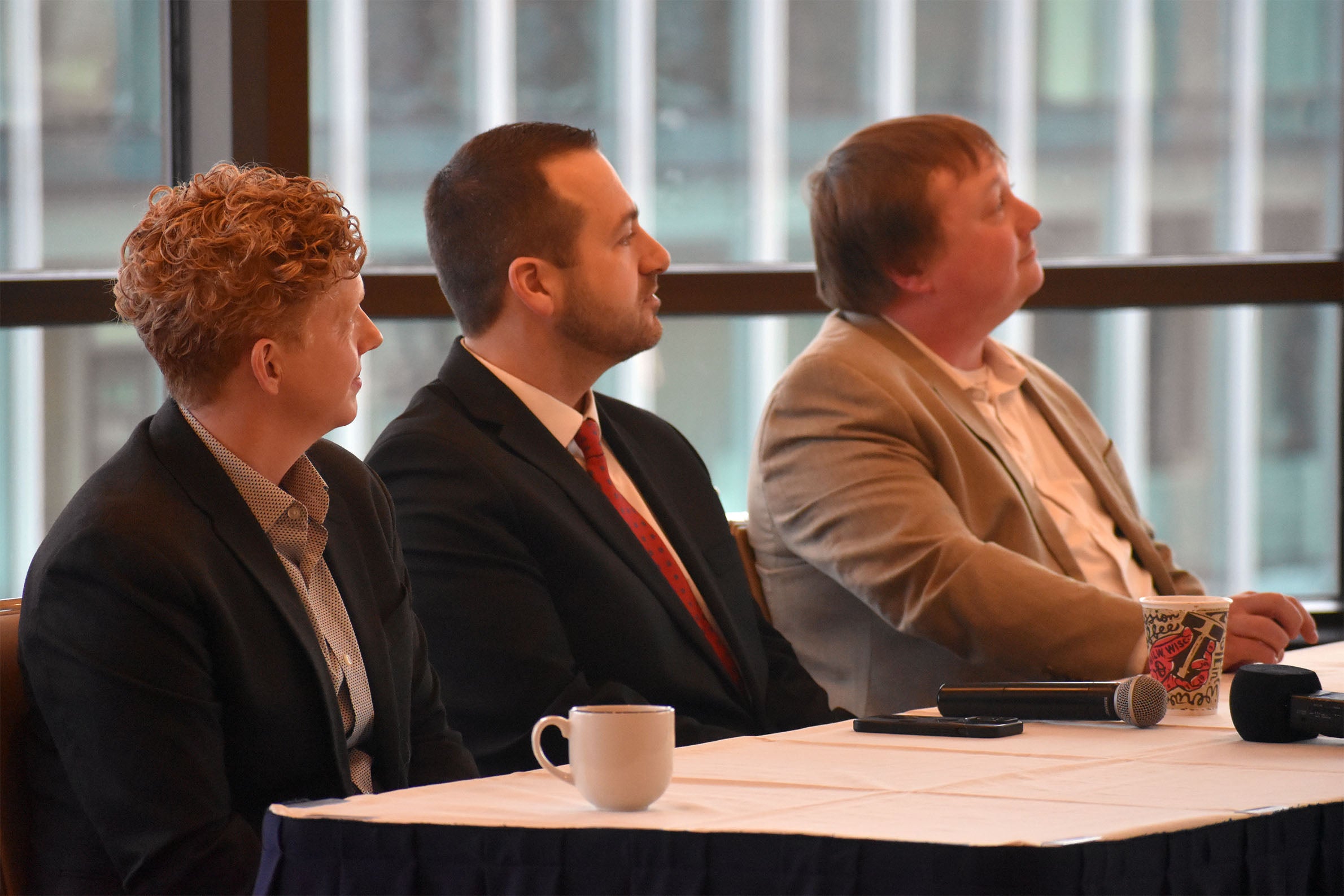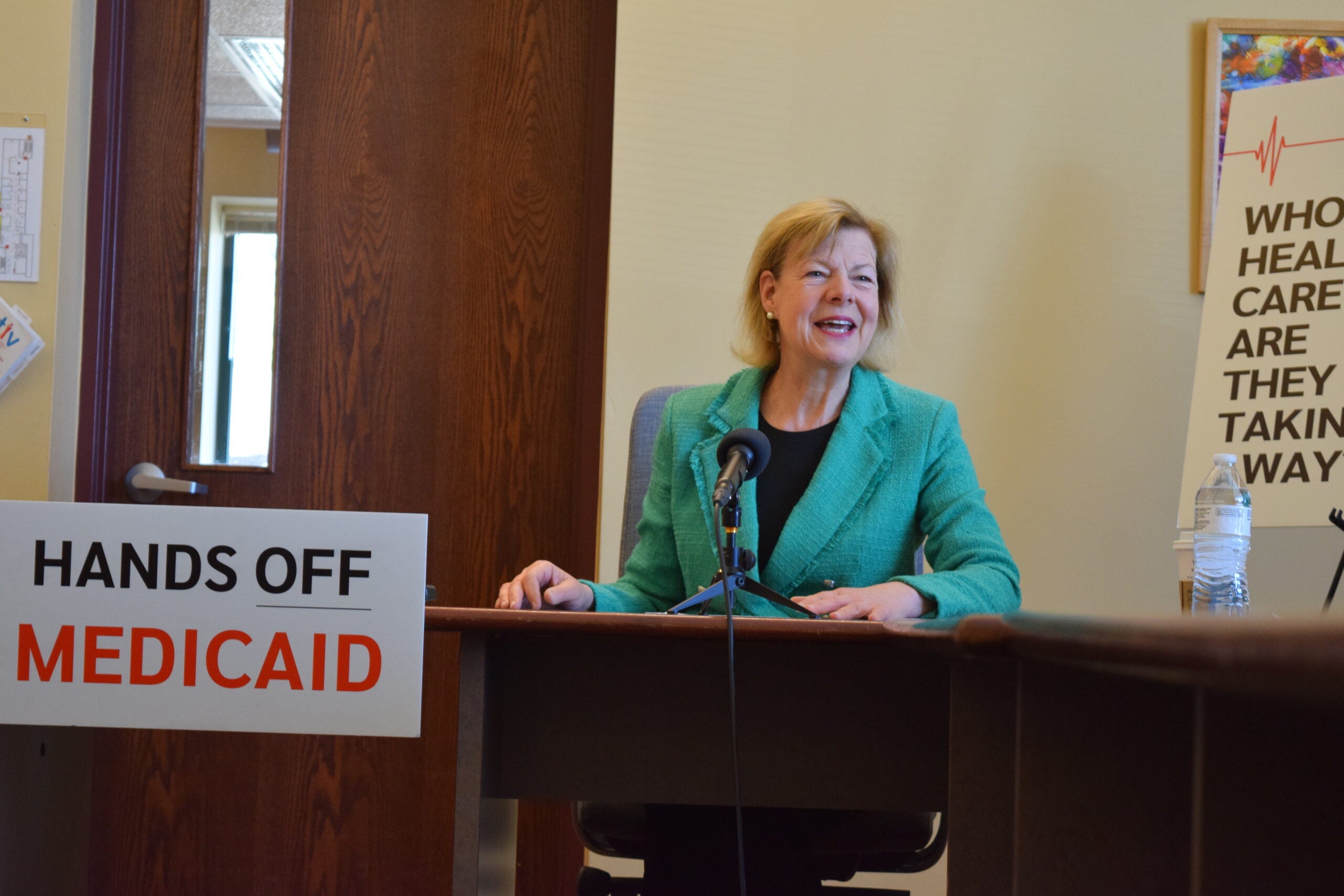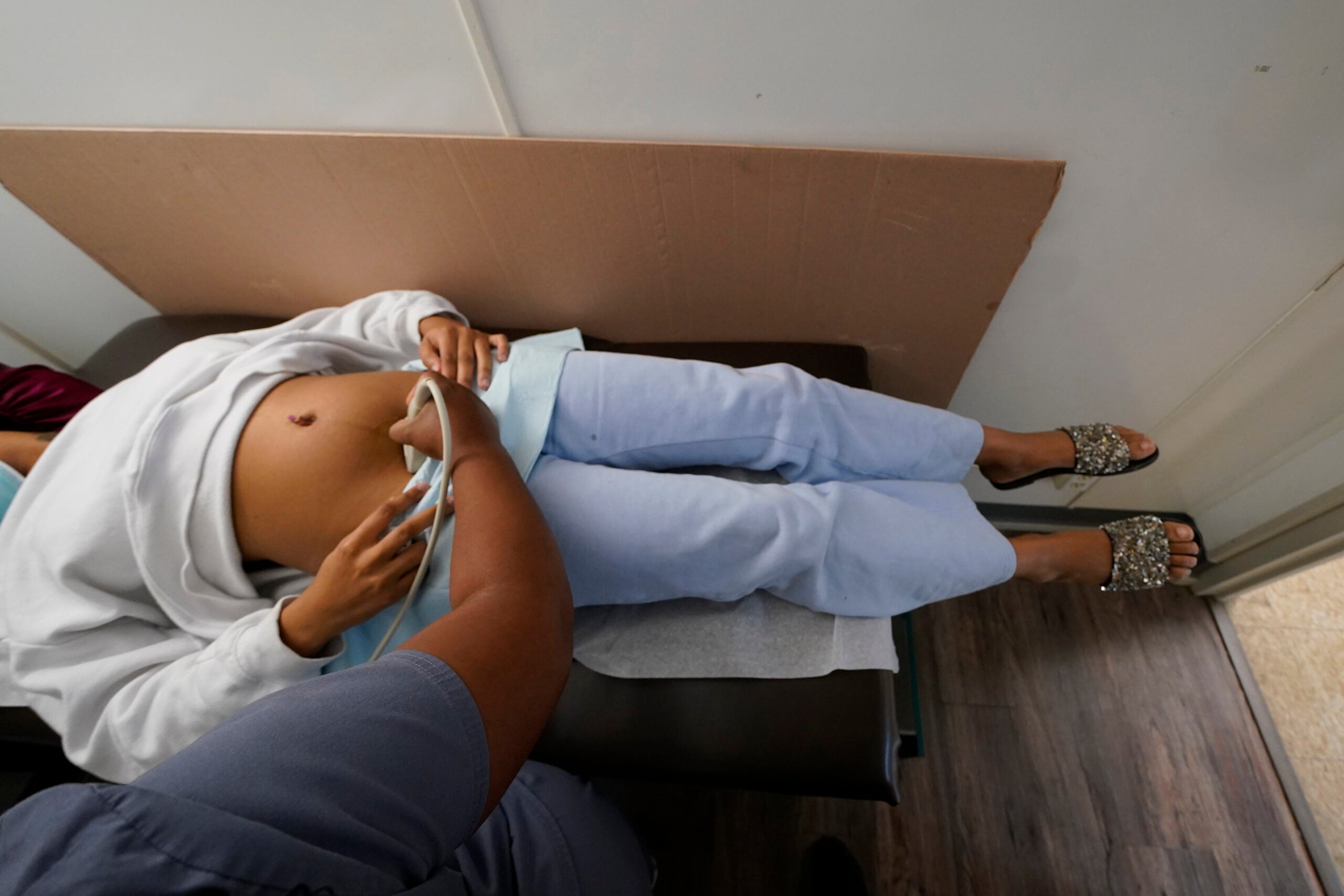Wisconsin could extend Medicaid coverage for postnatal mothers for up to a year, should a new bill in the state Legislature pass.
The bipartisan legislation introduced this month comes as the federal government plans to end the COVID-19 public health emergency in May. In Wisconsin, some 300,000 people are expected to lose insurance.
Dr. Amy Domeyer, chair of the Wisconsin section of the American College of Obstetricians and Gynecologists, said that states have been prohibited from withdrawing patients from Medicaid programs — but that will change.
Stay informed on the latest news
Sign up for WPR’s email newsletter.
“As an obstetrician gynecologist, I want all of my patients to not only survive the first 12 months, but thrive, and I don’t want to see people struggling through a mental health emergency and not having access to care,” she said.
Under current law, pregnant women with family incomes up to 300 percent of the federal poverty level qualify for extended Medicaid benefits for at least 60 days after they give birth.
A provision added to the state budget last year sought to increase that to 90 days, but it’s still awaiting approval from the U.S. Department of Health and Human Services.
The bill introduced this year would require the state to ask the federal government for at least 365 days of extended Medicaid benefits.
Evers recommended in his recently proposed budget a combined $34 million over the next two fiscal years to expand Medicaid postpartum coverage from 60 days to a year. But Republicans are unlikely to support his plan.
The state health department wrote in an email it estimates Evers’ proposal would result in 4,300 additional people getting Medicaid coverage.
For years, the U.S. has had the highest maternal mortality rate — pregnant people who die giving birth or the weeks after — compared to other wealthy nations. But the rate surged by 40 percent in 2021 over the previous year, according to a report released Thursday from the National Center for Health Statistics.
Nationally, Black women are 2.6 times more likely to die than white women, but that disparity is even more pronounced in Wisconsin, where Black women are five times more likely to die than white women.
“Wisconsin is failing. We have a huge health crisis when we’re looking at maternal and infant health,” said Emily Kittell, the maternal and infant health initiatives manager for March of Dimes Wisconsin, an advocacy group.
One of the common medical issues people confront after giving birth is depression.
Dr. Jasmine Zapata, chief medical officer for community health for the Wisconsin Department of Health Services, said postpartum depression can persist for weeks or months — something she’s seen firsthand as a pediatrician.
“I have seen that when birthing people are extremely stressed out or have a lot of different emotional and medical needs that they can’t address for themselves, it’s very hard to advocate for themselves and get the help that they need, but also to take care of the new baby,” she said.
Some symptoms of postpartum depression include feelings of sadness or anxiety, irritability, sudden mood changes, among others. And in more severe cases, some experience panic attacks, feelings of hopelessness and thoughts of harming oneself.
Legislation to expand Medicaid coverage comes after reversal of Roe v. Wade
The legislation also comes after the reversal of Roe v. Wade, the landmark Supreme Court decision that recognized the constitutional right to abortion. Since then, Wisconsin’s pre-Civil War abortion ban has gone into effect.
Kittell of March of Dimes Wisconsin said more people are concerned about the health of pregnant people.
“I think we have more people looking to support pregnant people in different ways, especially when we are assuming that more women are going to have to continue their pregnancy,” Kittell said.
Domeyer of the American College of Obstetricians and Gynecologists agreed, saying this year is different because of the decision to overturn Roe.
“Now, not only do you have people who wanted to become pregnant potentially losing insurance, but you have people who are potentially having complications of pregnancies that weren’t looking to be pregnant,” Domeyer said.
Domeyer pointed out that under Wisconsin law, abortion care can be provided to patients if the life — not the health — of the mother is threatened.
“If people have riskier pregnancies, they’re going to have riskier postpartum periods as well,” she said. “I think we are all going to be understanding and seeing over time what this looks like in terms of how this affects people’s mental health.”
Domeyer said she’s doubtful the legislation will pass before the COVID-19 public health emergency ends, but its bipartisan support shows “there’s a huge opportunity to pass it.”
Rep. Donna Rozar, R-Marshfield, is co-sponsoring the bill. She said there is division within the Republican ranks — some in her party don’t want to allocate more funding to Medicaid because they see it as an extension of entitlement programs.
“But as a pro-life individual, I felt very strongly that we needed to support the women who chose to carry their baby to full term and then deliver that baby, that this was one way that we could show our support for babies that were born by supporting their mothers,” Rozar said.
This year’s bill was referred to the Committee on Insurance and Small Business. State Sen. Joan Ballweg, R-Markesan, said she expects a public hearing will be held sometime in March and hopes the legislation passes.
“A mom that is healthy and stays part of the family is going to be a benefit to everyone in the community and to their families,” she said.
Wisconsin Public Radio, © Copyright 2025, Board of Regents of the University of Wisconsin System and Wisconsin Educational Communications Board.





